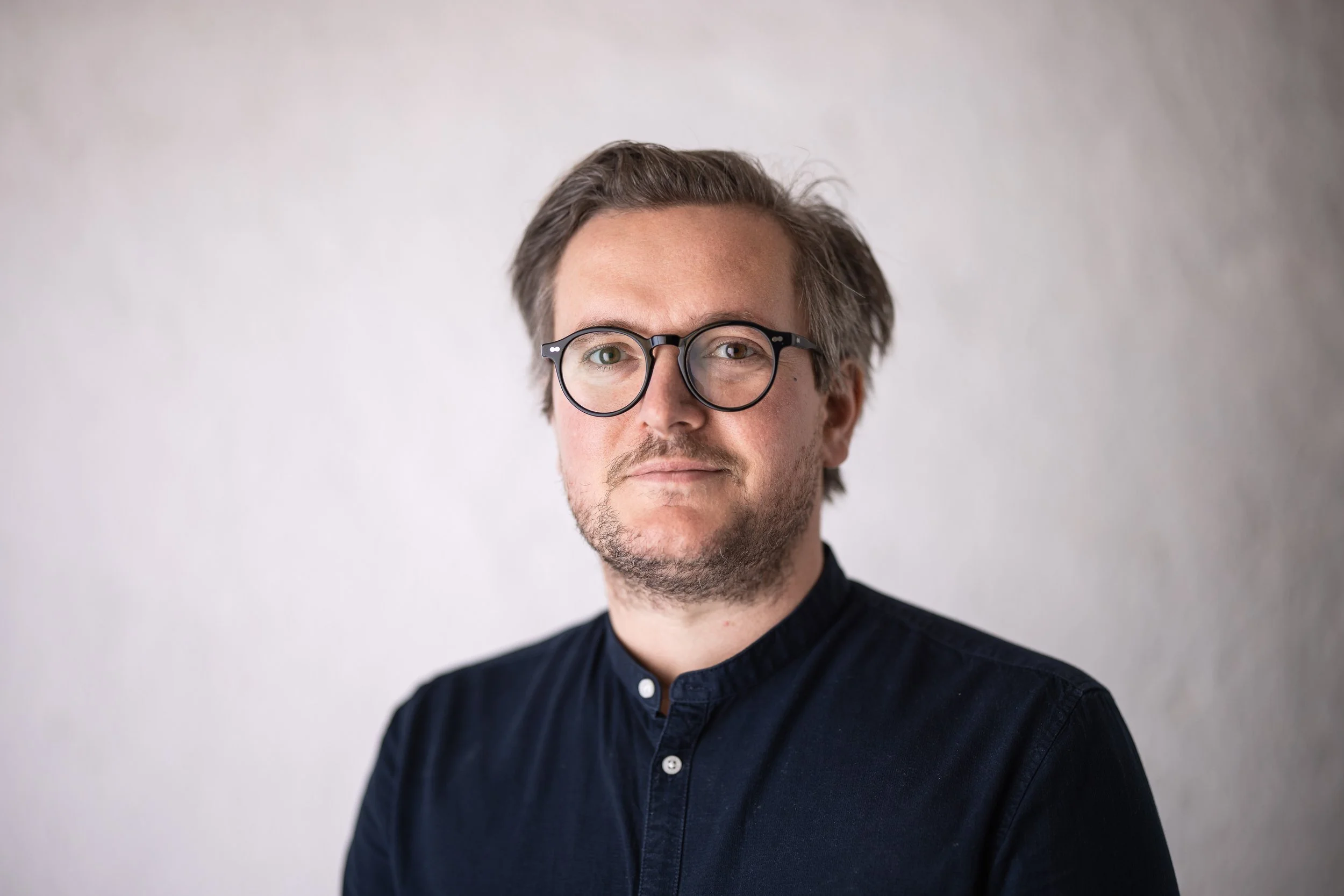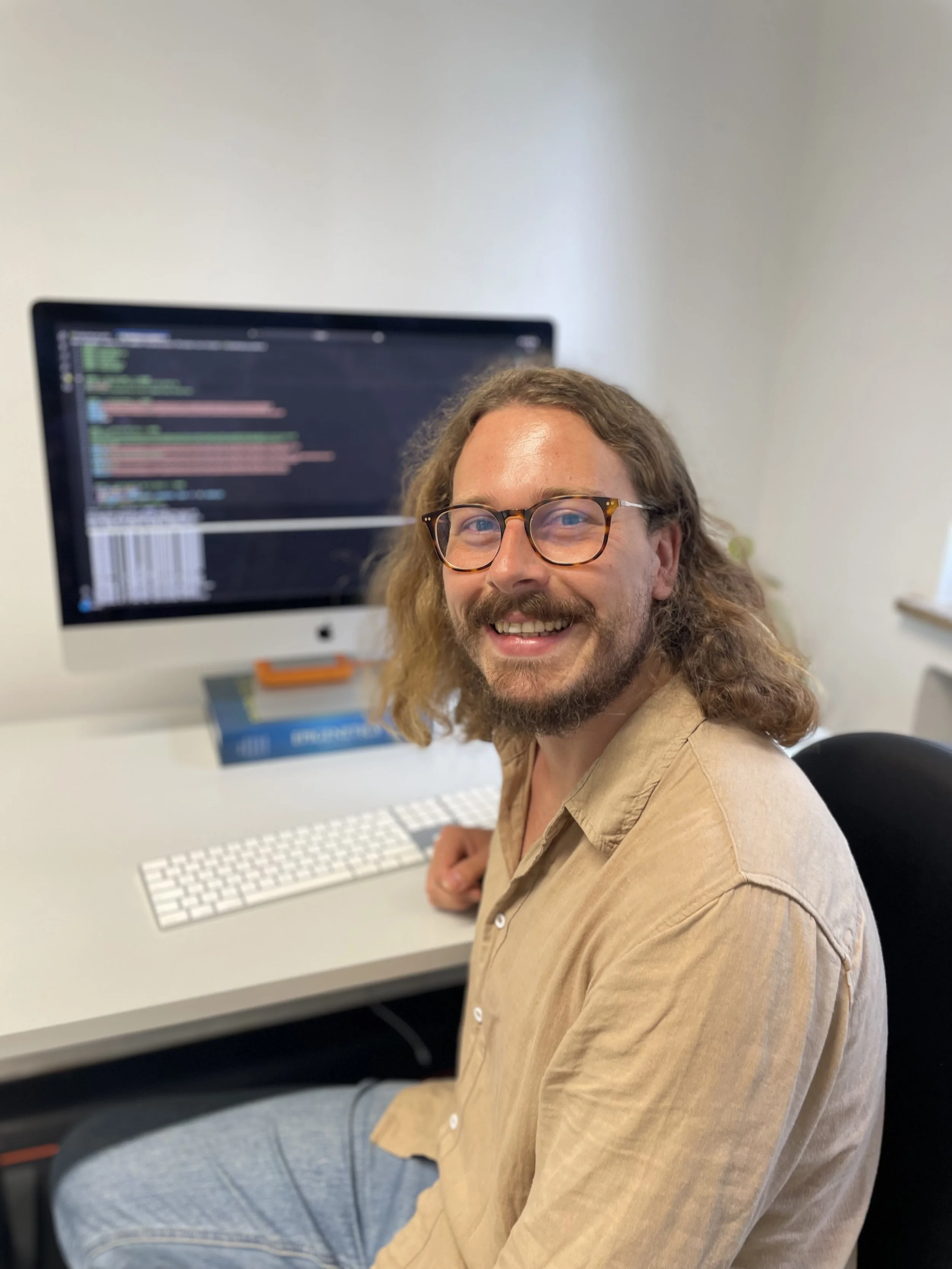We are an interdisciplinary research group
Daniel Andergassen, Ph.D. Independent Junior Research Group Leader
Daniel Andergassen received his Diploma degree in Molecular Biology from the University of Vienna in 2012. He then had the privilege to do his Ph.D. at CeMM under the supervision of Denise Barlow, a driving force of epigenetics, genomic imprinting, and lncRNA biology (2016). In her lab, he generated the most comprehensive map of allele-specific expression in the mouse, including identifying all the imprinted genes and X chromosome inactivation (XCI) escapers. To accomplish this, he developed a bioinformatics pipeline to detect allele-specific expression from high-throughput sequencing data. To learn more about lncRNA biology and epigenetic regulation, he joined the lab of John Rinn and Alexander Meissner as a postdoctoral researcher at Harvard, where he focused his research on X-linked lncRNA loci with sex-specific features that have been linked to the structure of the inactive X chromosome. In another project, he used CRISPR-Cas9 to target epigenetic key pathways in vivo, which revealed the imprinting mechanism genomewide. Furthermore, this approach demonstrated, for the first time, that the inactive X chromosome could be reactivated in vivo. Since 2020, he has been leading an independent junior research group at the TUM, aiming to understand the impact of the non-coding genome in disease and elucidate the contribution of sex chromosomes to sex differences in cardiovascular and pulmonary disease. To achieve these goals, the Andergassen lab combines allele-specific (Epi-) Genomics with the pharmacological translational expertise of the host institute led by Stefan Engelhardt, with the overall objective of developing RNA-based therapies for sex-specific treatments.
E-mail: daniel.andergassen@tum.de
Phone: +49 89 4140-3298
Dr. Sarah Hölzl Weiler
Postdoc
Sarah received her BSc degree in Molecular Medicine from the Medical University Innsbruck in Austria and her MSc degree from Imperial College London. In her Master's program, she investigated the role of components of the innate immune system in vascular homeostasis and atherosclerosis. As a Ph.D. student, she continues her studies in cardiovascular research by mapping the allele-specific landscape during cardiac aging and disease to elucidate mechanisms behind the CVD gender bias and development.
E-mail: sarah.hoelzl@tum.de
Phone: +49 89 4140-3269
Dr. Federico Bleckwedel
Postdoc
Federico earned a diploma in Biotechnology from the National University of Tucuman, Argentina, focusing on fungus control in the citrus industry. After graduation, he worked at FERTILIA, an IVF clinic in Tucuman. He then completed a Ph.D. at Georg-August-Universität in Germany, researching the transcriptome of failing hearts using single-cell resolution and CRISPR/dCas9. As a postdoctoral researcher, Federico will study the role of escape genes and sex biases in heart diseases at single-cell allele-specific resolution.
E-mail: federico.bleckwedel@tum.de
Phone: +49 89 4140-3269
Dr. Lachlan Gray
Postdoc
Lachlan completed his Bachelor’s degree at Macquarie University, followed by a Master’s at the University of New South Wales, where he investigated the interplay between microRNAs and circular RNAs in epilepsy. He earned his Ph.D. at the Garvan Institute of Medical Research, focusing on X chromosome inactivation in female autoimmune disease. As a postdoctoral researcher, Lachlan is now exploring the cell type–specific roles of Xist during embryonic organ development.
E-mail: Lachlan.gray@tum.de
Phone: +49 89 4140-3269
M.Sc. Lison Lemoine
Ph.D. Student
Lison studied bioinformatics at Pacific University for her B.Sc. and then received her M.Sc. in Biotechnology from the University of Maryland Global Campus in the United States. During her studies, she focused on bioinformatic approaches to create a prediction model for biological sequence functionality. As a Ph.D. student, she pursues her studies in bioinformatics by investigating epigenetic regulators in embryogenesis to uncover potential treatments for X-linked diseases.
E-mail: lison.lemoine@tum.de
Phone: +49 89 4140-3259
M.Sc. Adriel Hernando
Ph.D. Student
Adriel earned his MSc degree in Molecular Biology from the International Max Planck Research School at the University of Göttingen. In his Master’s thesis, he studied the role of the CTCF transcription factor in establishing multi-way chromatin interactions. As a Ph.D. student, he is exploring diverse epigenetic regulators and CRISPRa systems to reactivate healthy genes from the silenced X chromosome in vivo. In parallel, he investigates the molecular mechanisms of genes that can escape X inactivation.
E-mail: adriel.hernando@tum.de
Phone: +49 89 4140-3296
M.Sc. Zeynep Nur Eglenen
Ph.D. Student
Zeynep obtained her B.Sc. in Molecular Biology and Genetics from Koç University and her M.Sc. in Molecular Biology, Genetics, and Bioengineering from Sabancı University. Using cell culture and molecular biology techniques as well as bioinformatics, she investigated the impact of dietary miRNAs encapsulated in nanovesicles on food allergy. In addition, she analyzed how climate-adapted genes influence secondary dormancy in Arabidopsis thaliana. As a Ph.D. student, she is investigating the role of escape genes in the context of sex differences in disease.
E-mail: zeynep.eglenen@tum.de
Phone: +49 89 4140-3296
M.Sc. Laura Grzegorzek
Ph.D. Student
Laura received her Bachelor's degree in Biochemistry from the Universität Regensburg and continued her academic journey with a Master's degree at the Freie Universität Berlin. During her Master's thesis, she conducted research at the Instituto de Medicina Molecular in Lisbon, investigating the impact of cancer-associated mutations on the BRCA2 interactome in human induced pluripotent stem cells. As a Ph.D. student, she will be focusing on the role of X-linked escape genes in sex-biased lung diseases.
E-mail: laura.grzegorzek@tum.de
Phone: +49 89 4140-3296
M.Sc. Nicolás Delgado
Ph.D. Student
Nicolás studied biology at Universidad Peruana Cayetano Heredia before joining the MSc program Molecular Life Sciences at Georg-August_Universität Göttingen. There, he received training in the field of chromatin 3D architecture working with DLD cell lines. As a Ph.D. student in the Andergassen lab, he studies the molecular mechanism of the conserved lncRNA locus Firre and its trans-acting transcript in heart function.
E-mail: nicolas.delgado@tum.de
Phone: +49 89 4140-3296
M.Sc. Alessia Karasani
Ph.D. Student
Alessia earned her Master’s degree in Chemistry from the University of Innsbruck. For her Master’s thesis, she conducted a research stay at Scripps Research in San Diego, where she investigated antibody dynamics and antigen recognition mechanisms using computational methods and simulations. As a PhD student in the Andergassen Lab, Alessia focuses on bioinformatics approaches to study sex-biased gene expression.
E-mail: alessia.karasani@tum.de
Phone: +49 89 4140-3259
Marion Gonner
MD. Student
Marion started her medical studies at Ludwig Maximilian University of Munich (LMU) in 2018. After her first state exam in 2020, she is pursuing her medical degree at the Faculty of Medicine of Technical University Munich (TUM). In her doctoral project, she investigates the role of sex-specific lncRNA loci in cardiovascular diseases. The Deutsches Zentrum für Herz-Kreislauf-Forschung (DZHK) awarded Marion the Doctoral Scholarship for the execution of her MD thesis.
E-mail: marion.gonner@tum.de
Phone: +49 89 4140-3296
M.Sc. Alora Marks
Research technician
Alora studied Evolutionary Biology at Oxford Brookes University for her Bachelor's Degree and received a Master of Research Biology from the University College London. During her studies, she focused on the morphology and genetic variants involved in the formation of a cleft palate. Afterward, she started an extended internship at the Max-Planck Institute for Heart and Lung disease, investigating the molecular stress response of Zebra Fish embryos under hypoxic conditions or injury. As a research technician, Alora will support the team by generating bulk and single cell sequencing libraries.
E-mail: alora.marks@tum.de
Phone: +49 89 4140-3290
Sonja Schindela
Research technician
Sonja completed the vocational school for medical technology for laboratory analysis at the LMU in Munich. During her professional life she gained experience in molecular and cell biology methods as well as in industry and in academia. As a research technician, she takes over the laboratory organization, supports the team in establishing new methods and validates bioinformatics findings in vitro.
E-mail: sonja.schindela@tum.de
Phone: +49 89 4140-3296
Alumni
Ph.D. students
Tim Hasenbein, Ph.D. – Currently Postdoctoral Researcher, Forschungszentrum Borstel, Leibniz Lungenzentrum
Bachelor students
Lucas Kalczynski
Isabella Nistor
Internships
Rosa Weidenspointner
Franziska Scholz
Kristiana Ellen












